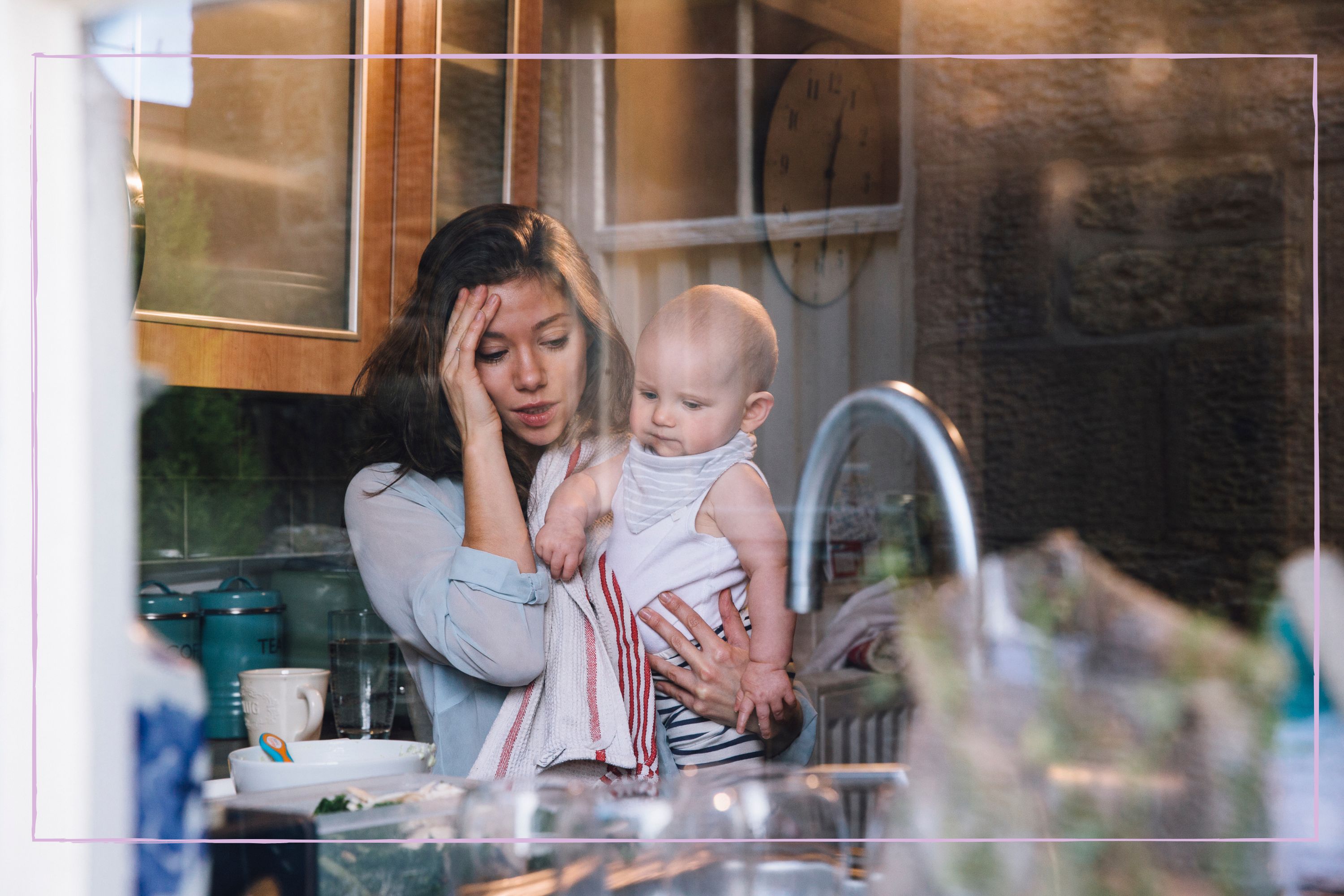
Parental burnout is not uncommon, but it can feel hard to overcome. One expert has shared her top tips...
Parenting is a rewarding journey that's full of happy moments, but it can also be stressful, exhausting and overwhelming - and that's ok. Raising a tiny human is no mean feat and, for many mothers, the period of matresence (becoming a mother) brings new psychological, emotional and social challenges with it. Not to mention the mum guilt and explaining the mental load to your partner when you realise that you can't do it all yourself.
All of this can lead to parental burnout, and although it's a very normal experience, it's not easy to deal with. That's why, ahead of Parent Mental Health Day (27th January), Action for Children has shared the signs of parental burnout as well as tips for how to cope with it.
Action for Children is a charity that protects and supports children and young people, and their free online Parent Talk advice service provides down-to-earth, trustworthy advice for parents and carers of children aged 0-19, or up to 25 where a young person has special educational needs.
And when it comes to parental burnout, Parent Talk coach Megan Bennett said: "We know from the conversations we have every day that the cost-of-living crisis is putting extra stress and pressure on many parents and carers. If you’re feeling overwhelmed on a day-to-day basis, you may have parental burnout. Burnout happens when stress gets too much.
"You might experience exhaustion, feel detached or depressed, or have little or no motivation. Getting some exercise, a good sleep routine and finding time and space for yourself can help prevent burnout."
Below, Action for Children has outlined the signs of parental burnout to look out for, as well as their tips on how to cope when it all gets a bit much.

The 7 signs of parental burnout
- Feeling like you need distance from your children.
- Exhaustion, either physically or mentally.
- Using food, drugs or alcohol to cope.
- A short temper or increased conflict within the family.
- Disrupted sleep patterns.
- Anxious feelings, anxiety or panic.
- Depression or not enjoying things you normally enjoy.
Tips for dealing with parental burnout
- Set boundaries - It's okay to say no. Look for where you’re putting pressure on yourself or where it feels like others expect too much of you.
- Seek practical support - This could be from friends, family or your child’s school.
- Talk to someone - If you don’t feel you can talk to friends or family, consider speaking to a health visitor, a children’s centre or your GP. You can also use Action for Children's one-to-one live chat service.
- Set aside worry time - This gives you a space to let your mind focus on anxious feelings, rather than letting them build up. If an anxious thought appears throughout the day, note it down and set it aside for later.
- Remember the positives - When you’re feeling burnt out, your mind is likely to focus on the negatives. Try countering this with a gratitude activity when you wake or before you go to bed.
- Improve your sleep - It can be helpful to create a bedtime routine. Avoid screentime before bed and cut out alcohol and caffeine.
- Find ways to be active - If you’re short on time, start small. Do something for five minutes then work up from that.
- Create moments of calm - Decide on a time in the day when you can focus on yourself. Even a little bit can make a difference.
Parenting coach Megan adds, "It’s important for anyone needing help to talk to someone, whether that’s a family member, friend or your GP. You can also log on to Parent Talk’s free 1:1 online chat service for judgement-free advice and support from a trained parenting coach."
You can find more advice for dealing with parental burnout on Action for Children's website. For further support, visit their Parent Talk advice service.
In other parenting news, our writer reveals how parental burnout nearly broke her - and how she overcame it. If you think you could be struggling with parental burnout, we've shared expert tips on how to manage stress as well as these relaxation exercises. You could also try some of these self-care ideas - they're all free.







